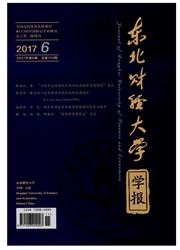

 中文摘要:
中文摘要:
流域生态补偿是生态补偿在流域实践上的应用,是以流域生态系统为主体、研究流域内区域间由于外部性和流域的公共物品性质而引发的损益补偿问题。本文结合公共物品及外部性理论与国内外流域生态补偿实践经验,提出流域生态补偿的四项基本原则,即补偿保护者原则、受益者补偿原则、公平补偿原则和可操作性灵活性原则。本文总结了目前国内政府付费和市场交易两种主流的流域生态补偿模式并进行对比分析,明确流域补偿向市场交易方向发展的核心问题在于流域水资源产权的模糊。在建立了流域上下游演化博弈模型的基础上,提出流域生态补偿最优模式:将水资源产权下放至地方并建立起二级政府反馈惩罚制度。
 英文摘要:
英文摘要:
Valley ecological compensation where watershed system dominates is the application of Ecocompensation in valley practice. It mainly studies loss compensation caused by externalities and public goods nature between two areas within the valley. Combined with public goods theory, externalities theory and practice experience of fiver basin ecological compensation both in China and abroad, the basic principle of river basin ecological compensation falls into four catalogues: equity principle; operability and flexible principle. This paper ecology compensation which are government payment and market protector benefits ; beneficiary compensate ; has summarized two major models of valley dealings in China and figured out effects and weakness in each model, pointing out that the key problem in marketing dealings of valley compensation is the blur in water resourses fights. On the basis of evolutionary games theory model, the optimization of river basin ecological compensation model is raised up: water resourses fights should be given to the local and punishment system based on second-stage government feedback should be built up; For cross-regional fiver basin ecological compensation, interagency transfer payment system should transfers to market dealings model which means the fight of use and development are supposed to get paid and compensated ; for intra-regional, valley ecological compensation takes the market payment model categorized by pollution resourse in valley.
 同期刊论文项目
同期刊论文项目
 同项目期刊论文
同项目期刊论文
 期刊信息
期刊信息
